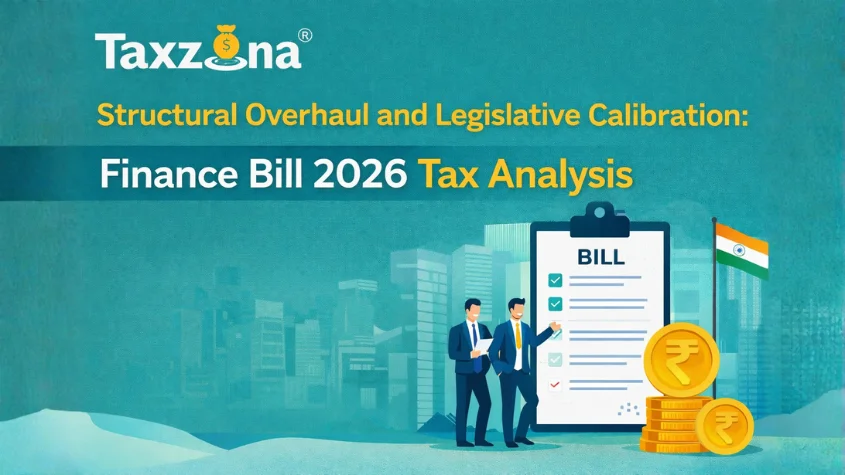
Bombay High Court Quashes GST Bank Recovery Notice Under Section 79
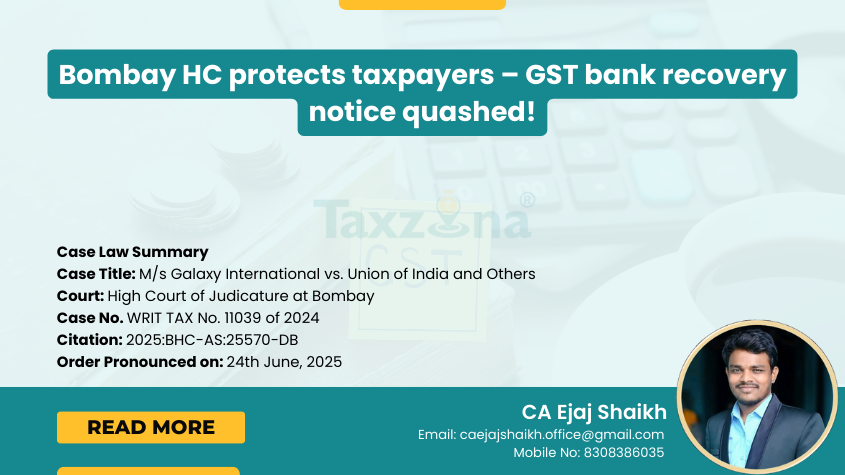
1. Issue Involved
- The core issue involved in this writ petition was whether a notice for recovery of tax dues under Section 79(1)(c) of the CGST Act, 2017, can be directly issued to a third party (i.e., a bank) in Form DRC-13, without first issuing any notice or intimation to the person from whom such dues are allegedly recoverable.
- The petitioner challenged the legality and validity of such a notice, asserting that the mandatory procedural requirements under the CGST Act had not been followed.
Facts of the Case
- The petitioner, M/s. Galaxy International approached the Hon’ble Bombay High Court challenging a notice dated 9th July 2024 issued under Section 79(1)(c) of the CGST Act. This notice was addressed directly to the Branch Manager of the third respondent bank at Gurugram. The petitioner contended that it did not maintain any account in the Gurugram branch, and that its actual account was with the Mulund branch.
- Moreover, the notice appeared to seek recovery of GST dues amounting to ₹30.19 crores payable by a third party, namely M/s. Durga Madhab Panda (Urneed Online Retail), and not the petitioner.
- The petitioner further submitted that no amount was due or payable by it to the said defaulter. Despite these facts, no prior notice was served on the petitioner before attempting such recovery through the appellant bank.
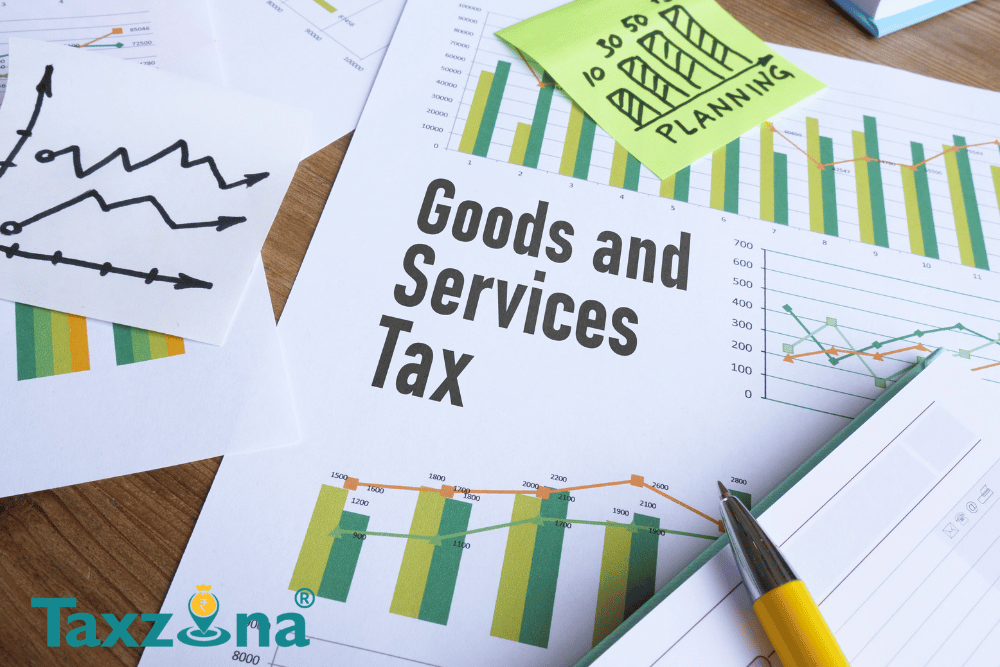

3. Observations of the Court
- The Hon’ble Court examined the scope and intent of Section 79 of the CGST Act, particularly sub-clause (1)(c)(i) and sub-clause (1)(c)(vii). The Court noted that Section 79 empowers the proper officer to issue a notice to a third party holding or likely to hold money for a defaulting taxpayer, requiring them to remit the amount to the government. However, the Court emphasised that the statute also provides an important safeguard under clause (vii), which allows such a person to demonstrate that no such money is due or held.
- In order to avail this safeguard, a proper notice must first be served on the person alleged to be holding such funds. In the present case, since no notice was issued to the petitioner, it was deprived of the opportunity to rebut the presumption of liability. The Court relied upon the Karnataka High Court’s judgment in S.J.R. Prime Corporation Pvt. Ltd. vs. Superintendent of Central Tax (2025 [92] G.S.T.L. 154), where a similar procedural lapse led to quashing of the recovery notice.
4. Judgment of the Court
- The Bombay High Court held that the impugned notice dated 9th July 2024 was procedurally invalid, as no notice was served on the petitioner prior to initiating recovery through the bank. On this sole but significant ground, the Court quashed and set aside the said notice.
- However, the Court granted liberty to the department to issue a fresh notice to the petitioner, if it wishes to proceed in accordance with law. The Court also recorded the correct address of the petitioner as mentioned in the cause title of the petition. The rule was made absolute, and no order as to costs was passed.
5. Key Learnings
- This judgment reaffirms the importance of following procedural safeguards under the CGST Act. Section 79(1)(c) empowers tax authorities to recover dues from third parties, but only after giving a fair opportunity to the alleged holder of funds.
- A failure to serve notice on such party renders the recovery action unlawful. This case sends a strong message that natural justice and statutory compliance cannot be bypassed in the name of tax recovery.
6. Conclusion
The decision in M/s. Galaxy International is a clear and important precedent affirming that tax recovery mechanisms must comply with the procedural framework laid down in law. Issuing notice directly to the bank without first notifying the alleged payer violates principles of natural justice. Such actions are liable to be quashed by constitutional courts. However, the ruling also clarifies that the tax department is not precluded from taking action- they must simply follow due process before doing so.
Recent Post

Structural Overhaul and Legislative Calibration: An In-Depth Analysis of the Finance Bill 2026
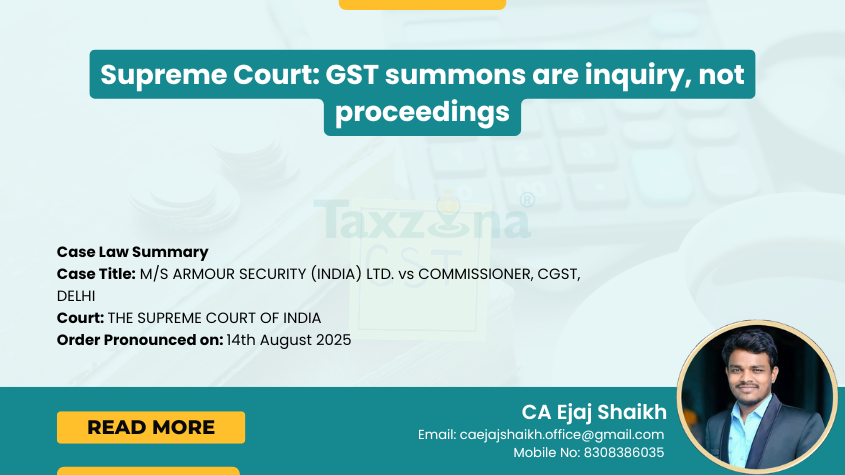
Supreme Court Clarifies GST Summons vs Proceedings
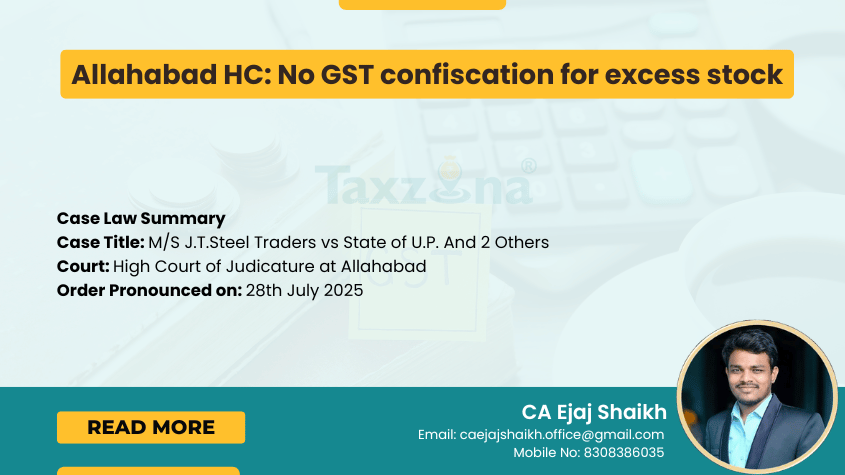
Allahabad HC Quashes GST Confiscation for Excess Stock
Have Any Question?
Our experts at Taxzona are here to help you with GST, Income Tax, and all your financial queries. Get reliable guidance tailored to your business and personal needs.

